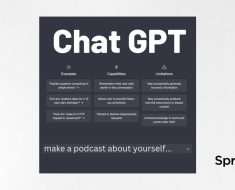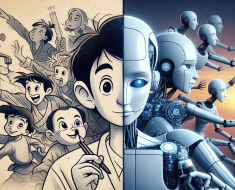Have you ever found yourself turning to a mental health app during a stressful moment? These tools, powered by AI in mental health, promise everything from stress management to personalized emotional support. They’re marketed as accessible, affordable, and always available. But can they really help you improve your well-being, or do they fall short? Let’s explore their benefits, limitations, and how to make the most of them while safeguarding your emotional health.
The Role of AI in Mental Health Apps
The use of AI in mental health apps has transformed how we approach emotional well-being. These apps leverage machine learning, natural language processing, and data analytics to provide support. They’re designed to simulate conversations, analyze emotional patterns, and offer actionable strategies—all while fitting neatly into your daily life.
How AI Mental Health Apps Work


Chatbots as Virtual Therapists
AI chatbots, such as Woebot and Wysa, are among the most popular features of mental health apps. They simulate conversations and provide suggestions based on what you share. For instance:
- If you say, “I feel anxious,” the chatbot might suggest breathing exercises or affirmations.
- Over time, the app might even track patterns in your responses and tailor its suggestions ac-cordingly.
However, chatbots can’t truly understand complex emotions, which is where their limitations begin to show.
Tracking Your Moods and Patterns
AI mental health apps often include tools for logging your emotions and activities. Apps like Youper combine these logs with AI algorithms to:
- Identify patterns in how you’re feeling.
- Suggest coping strategies or lifestyle changes, like taking more breaks or adjusting your sleep schedule.
By using AI in mental health, these apps aim to make emotional wellness feel more personalized and actionable.
Why AI Mental Health Apps Are Gaining Popularity
1. Affordable and Accessible
Traditional therapy can cost hundreds of dollars per session, but apps offer a cheaper or even free alternative. This affordability has made AI in mental health accessible to millions, including those in areas where therapists are scarce.
2. Always There When You Need It
Mental health apps are available 24/7, which is invaluable during moments of crisis. Whether you’re lying awake at night feeling anxious or having a tough day at work, these apps are just a tap away.
3. Private and Nonjudgmental
Talking to a therapist can feel intimidating for some people. AI-powered apps allow users to explore their emotions in a private and judgment-free space, making it easier to take the first step toward mental health care.
The Downsides of AI Mental Health Apps


1. Empathy Is Missing
One of the most significant limitations of AI-driven apps is the lack of true empathy. While chatbots may validate your feelings with programmed phrases like “That sounds really tough,” they lack the depth and understanding of human interaction.
2. Privacy Concerns
Using AI in mental health tools means sharing sensitive data, which raises concerns about how that information is stored and shared. For example:
- A Consumer Reports study found that some mental health apps shared user data with social media platforms1.
- Many users don’t read privacy policies, leaving them unaware of potential risks.
3. Generic Solutions for Complex Problems
AI algorithms often rely on generalized data, which can make their suggestions feel impersonal. For example:
- A user dealing with cultural stigma around mental health might not find the advice relevant.
- Someone with severe depression may feel unsupported by an app that recommends “going for a walk”2.
Can AI Mental Health Apps Replace Therapy?
The simple answer? No. These tools work best as supplements to professional care, not replacements. Licensed therapists can:
- Provide empathy and nuanced understanding.
- Adjust strategies in real time based on individual needs.
Apps powered by AI in mental health are excellent for tracking moods, learning coping techniques, or managing mild stress, but they can’t address deeper or more complex issues on their own.
Future Trends in AI and Mental Health


AI technology in mental health is evolving quickly. Here’s what’s on the horizon:
- Improved Emotional Understanding: Developers are working on AI that can detect emotional nuances in tone or word choice to better simulate empathy.
- Stronger Privacy Protections: Regulatory changes may require apps to adopt stricter data security measures, making them safer to use.
- Greater Cultural Sensitivity: Apps are starting to incorporate data from diverse populations, making them more inclusive and relevant.
These advancements could make AI in mental health more effective and trustworthy.
Practical Tips for Using AI Mental Health Apps
If you’re considering adding an app to your mental health toolkit, here’s how to make the most of it:
1. Use Them Alongside Therapy
AI apps work well when combined with traditional therapy. For example:
- Log your moods in the app and share that data with your therapist to identify patterns.
- Use the app between sessions to practice skills learned in therapy.
2. Choose Apps with Strong Privacy Policies
Before signing up, check how your data will be stored and used. Look for apps that:
- Clearly explain their privacy terms.
- Avoid sharing data with third parties.
3. Be Realistic About Their Capabilities
Understand what these apps can and can’t do. Use them as tools for self-awareness and skill-building, but don’t expect them to replace professional mental health care.
Comparison of Popular AI Mental Health Apps
| App Name | Features | Best For | Cost |
|---|---|---|---|
| Woebot | Chatbot, CBT techniques | Managing mild stress | Free |
| Wysa | AI conversations, mindfulness | Emotional support | Free/Premium |
| Youper | Mood tracking, personalized insights | Improving emotional awareness | Free/Premium |
| BetterHelp | Access to licensed therapists | Therapy combined with AI tools | $60–$90/week |
Ethical Concerns with AI in Mental Health
The growing role of AI in mental health raises several ethical issues:
- Bias in AI Algorithms: Many apps are trained on limited datasets, which can result in biased recommendations that exclude certain groups.
- Transparency Issues: Developers need to be clear about how data is used and ensure that users know what they’re signing up for.
- Accountability: If an app gives bad advice or mishandles sensitive data, who is responsible?
To address these concerns, stricter regulations and ethical guidelines are necessary.
So, Are Mental Health Apps Helping?


The verdict: AI mental health apps can be incredibly helpful for many people, but they’re not a one-size-fits-all solution. They’re best used as tools to enhance your mental health journey, not as standalone fixes. If you decide to use one:
- Be mindful of its limitations.
- Pair it with professional care for more comprehensive support.
- Take time to review privacy policies to protect your data.
When used wisely, these tools can provide valuable insights and practical help—but remember, there’s no replacement for human connection.
Notice: It is important to note that the author of this article is not a doctor or mental healthcare professional. The information provided should not be considered a substitute for professional medical advice or guidance. Readers are advised to consult with their healthcare provider or a qualified mental health professional before making any decisions related to mental health care or treatment. Each individual’s mental health needs are unique, and what may be suitable for one person may not be suitable for another. The author encourages readers to prioritize their health and safety and make informed decisions with the guidance of a qualified professional.
Citations:
1. Germain, Thomas. “Mental Health Apps Aren’t All As Private As You May Think.” Consumer Reports, 2 Mar. 2021. Consumer Reports
2. Abrams, Zara. “AI is Changing Every Aspect of Psychology. Here’s What to Watch For.” American Psychological Association, 1 July 2023. APA
Please note, that the author may have used some AI technology to create the content on this website. But please remember, this is a general disclaimer: the author can’t take the blame for any mistakes or missing info. All the content is aimed to be helpful and informative, but it’s provided ‘as is’ with no promises of being complete, accurate, or current. For more details and the full scope of this disclaimer, check out the disclaimer page on the website.





